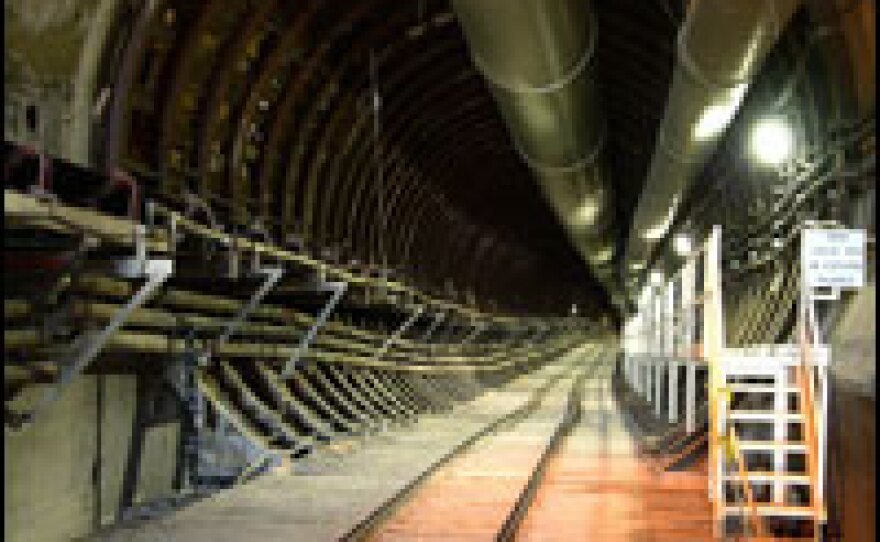
The government's long-awaited application for a license to open a nuclear waste repository in Nevada arrived at the Nuclear Regulatory Commission early Tuesday morning. There was so much paperwork it arrived by truck.
The project to build the repository has been in the works for decades and still faces many obstacles.
The government has spent $6 billion so far studying the site at Yucca Mountain, and nuclear advocates saw Tuesday's application as a step forward. "This application represents the culmination of over 20 years of work by some of the nation's leading scientists, engineers and technical experts," Energy Secretary Samuel Bodman said Tuesday.
The planned repository would hold canisters of nuclear waste in tunnels beneath Yucca Mountain. The repository as planned would accommodate 77,000 tons of spent nuclear fuel and high-level nuclear waste.
To get the license, the government has to show — with computer models — that the repository won't leak dangerous amounts of radioactive material into the groundwater over the ages. No decision has been made as to how far into the future this rule must hold true, but the Environmental Protection Agency is considering a proposal that would require compliance 1 million years from now. Some scientists say it could be hard to prove anything that far out reliably.
"We have done our level best," said Bodman. "We believe it could be done or we wouldn't be standing before you here today."
Congress designated Yucca Mountain as the likely site over 20 years ago, but it has faced strong opposition from Nevada.
Senate Majority Leader Harry Reid (D-NV) recently helped cut funding for the project, even though that has led to layoffs in his state.
"This is bad from the beginning to the end," he said in a statement. "This whole process is doomed to failure. There is no chance Yucca Mountain is going to be a place for siting nuclear waste."
Yucca Mountain has come up in the presidential campaigns. Democratic candidates Barack Obama and Hillary Clinton oppose the project. Republican John McCain supports it — and nuclear power as a way of combating climate change overall — though in one recent speech in Nevada he suggested that there might be an alternative.
The reality is that for the near term, the waste will stay where it is in big metal containers at the nuclear power plants around the country.
By law, the U.S. government was required to begin picking up the waste 10 years ago. It didn't — and electrical utilities filed over 60 lawsuits. Jerry Stouck, an attorney with the firm Greenberg Traurig, is handling 10 of those lawsuits. And he said he's happy the license application was finally submitted Tuesday.
"It's a significant milestone," he said, "a very significant milestone on the way to opening the repository. But the licensing process will have to take place now. That's a significant undertaking that's going to take several years."
The state of Nevada has said it will contest the license application on hundreds of points.
Until then, the government will have to pay utilities to compensate them for the costs of keeping the waste on site. As of the end of last year, the U.S. had paid out $290 million and spent almost $100 million in legal fees.
The Department of Energy now says the earliest the nuclear waste repository could open would be 2020.
Copyright 2022 NPR. To see more, visit https://www.npr.org. 9(MDAzMjM2NDYzMDEyMzc1Njk5NjAxNzY3OQ001))







